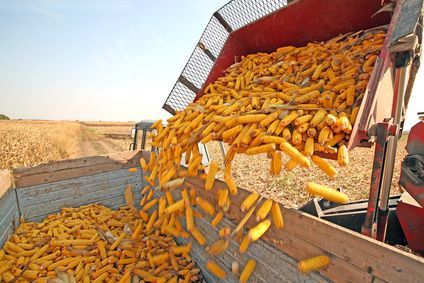 In a series of ongoing lawsuits, Syngenta faces plaintiffs from all parts of the corn industry, now including a group of Missouri farmers who lost money due to the decline of corn prices in 2013. This decline, members of the industry claim, is a direct result of Syngenta selling a certain genetically modified (GMO) strain of corn called Agrisure Viptera MIR162.
In a series of ongoing lawsuits, Syngenta faces plaintiffs from all parts of the corn industry, now including a group of Missouri farmers who lost money due to the decline of corn prices in 2013. This decline, members of the industry claim, is a direct result of Syngenta selling a certain genetically modified (GMO) strain of corn called Agrisure Viptera MIR162.
Syngenta, an agribusiness that produces seeds, has sold the GMO corn seed Viptera to U.S. farmers since 2011. This strain was created to protect the corn against harmful pests like corn borer and corn rootworm.
There is no indication that the corn is unsafe to eat or sell, but the refusal of China to import this GMO corn strain has had serious negative effects on the industry. China is the third largest importer of U.S. corn, and its rejection of Syngenta GMO seed had a ripple effect throughout the U.S. corn industry.
When Syngenta began selling the Viptera seed to U.S. farmers, China had not actually approved the GMO seed for import. In 2013, Chinese importers found traces of the strain in a few U.S. corn shipments, causing China to refuse all shipments from the U.S. This refusal had a devastating effect on the U.S. corn industry, dropping prices from $7 per bushel down to $3.30.
An estimated 400,000 growers, shippers, exporters, and others were affected by the rejection of imports to China, and more than 20,000 have already filed lawsuits against Syngenta. As the litigation process begins, more lawsuits are expected from across the country.
Syngenta GMO Corn Lawsuits
Attorney’s are now reaching out to farms in Missouri and other states with high corn yield whose farmers may wish to file lawsuits against Syngenta.
It is not only individual farmers who are filing against Syngenta. Large U.S. agricultural companies such as Cargill and Archer Daniels Midland have filed Syngenta lawsuits following the decline in corn pricing.
Though Syngenta claims their Viptera MIR162 seed is nondefective and was approved for cultivation in the U.S., lawsuits respond that selling the GMO seed before it was approved by all major markets for U.S. corn exports was not only a bad business decision, but is directly responsible for the loss of exports to China and thus the loss of billions of dollars in corn exports.
These lawsuits claim that Syngenta should have predicted the issue, or at the very least chosen to delay selling the new Viptera corn strain until its sale had been approved by all necessary parties.
The litigation process will require Syngenta to identify how much of the corn price drop can be attributed to MIR162. Subsequent settlement money will, at the very least, return a portion of the dropped corn price back to the farmers who have lost money.
If you have been negatively affected by Syngenta MIR162 or declining corn prices, you may be able to join a class action lawsuit investigation.
Do YOU have a legal claim? Fill out the form on this page now for a free, immediate, and confidential case evaluation.
ATTORNEY ADVERTISING
Top Class Actions is a Proud Member of the American Bar Association
LEGAL INFORMATION IS NOT LEGAL ADVICE
Top Class Actions Legal Statement
©2008 – 2025 Top Class Actions® LLC
Various Trademarks held by their respective owners
This website is not intended for viewing or usage by European Union citizens.
Get Help – It’s Free
Join a Free Syngenta Corn Class Action Lawsuit Investigation
If you, a family member, a partner, or an associate has been affected by Syngenta® GMO corn or declining corn prices, you may be eligible for compensation. Obtain a free and confidential review of your case by filling out the form below.
An attorney will contact you if you qualify to discuss the details of your potential case at no charge to you.
Oops! We could not locate your form.












